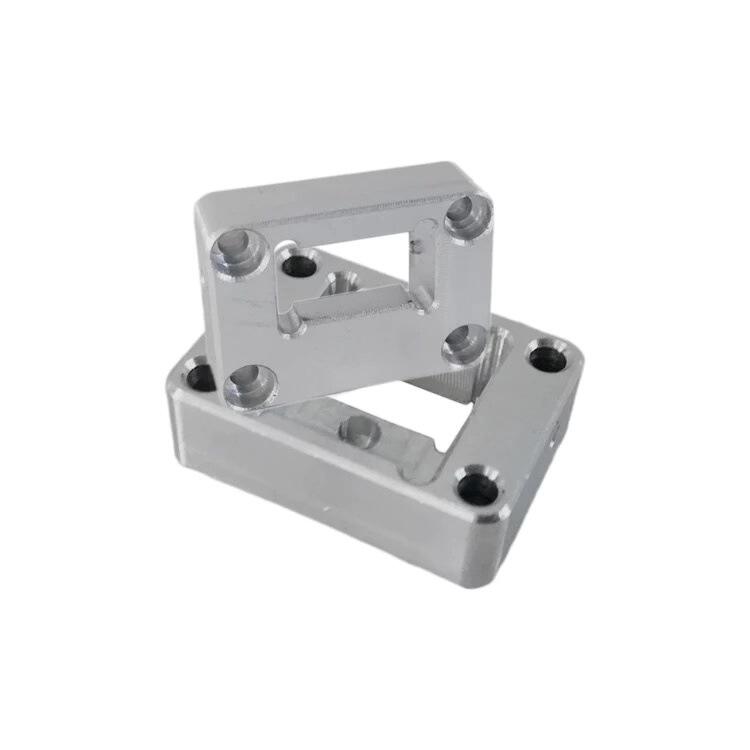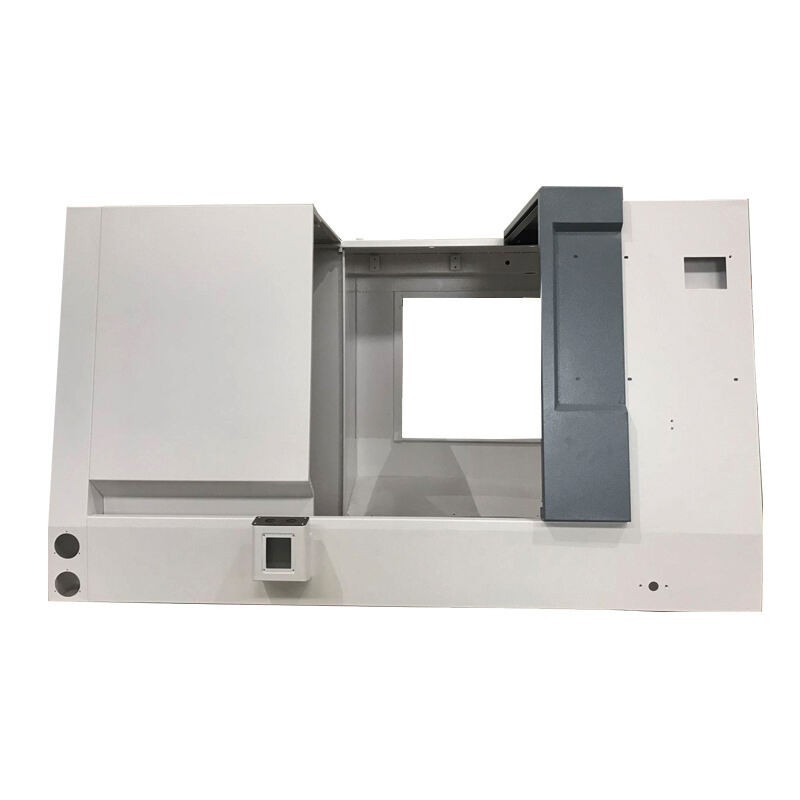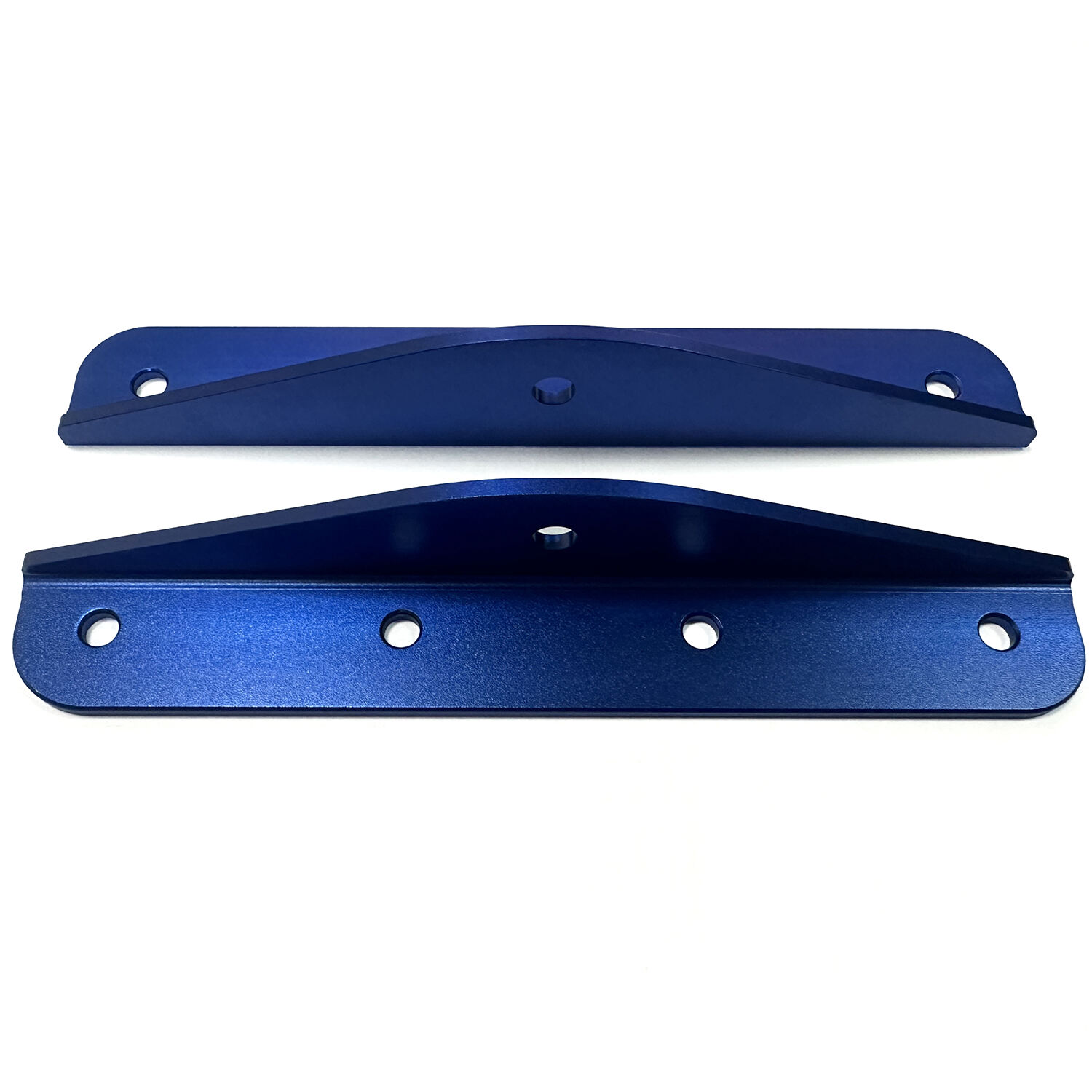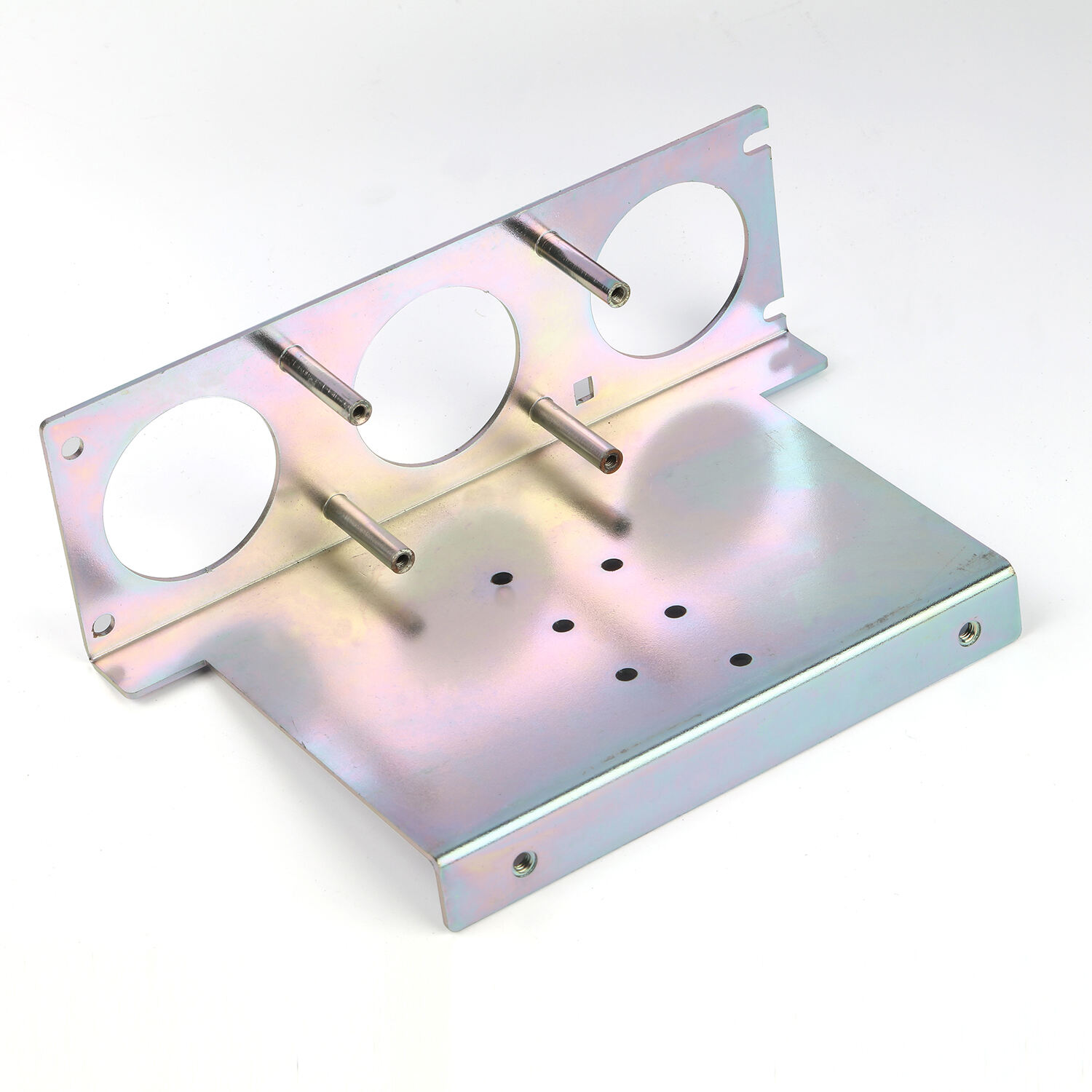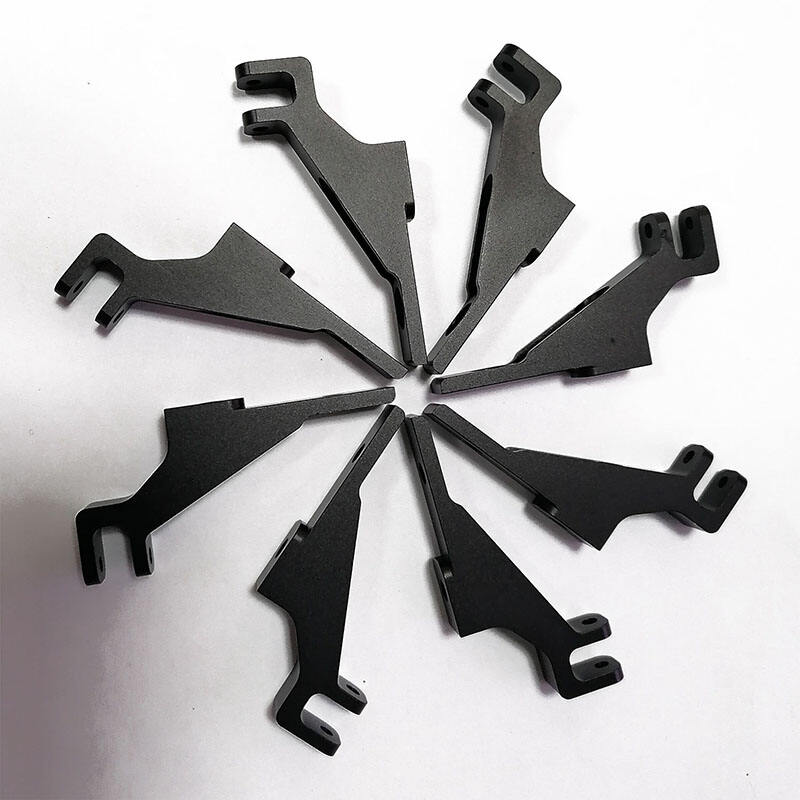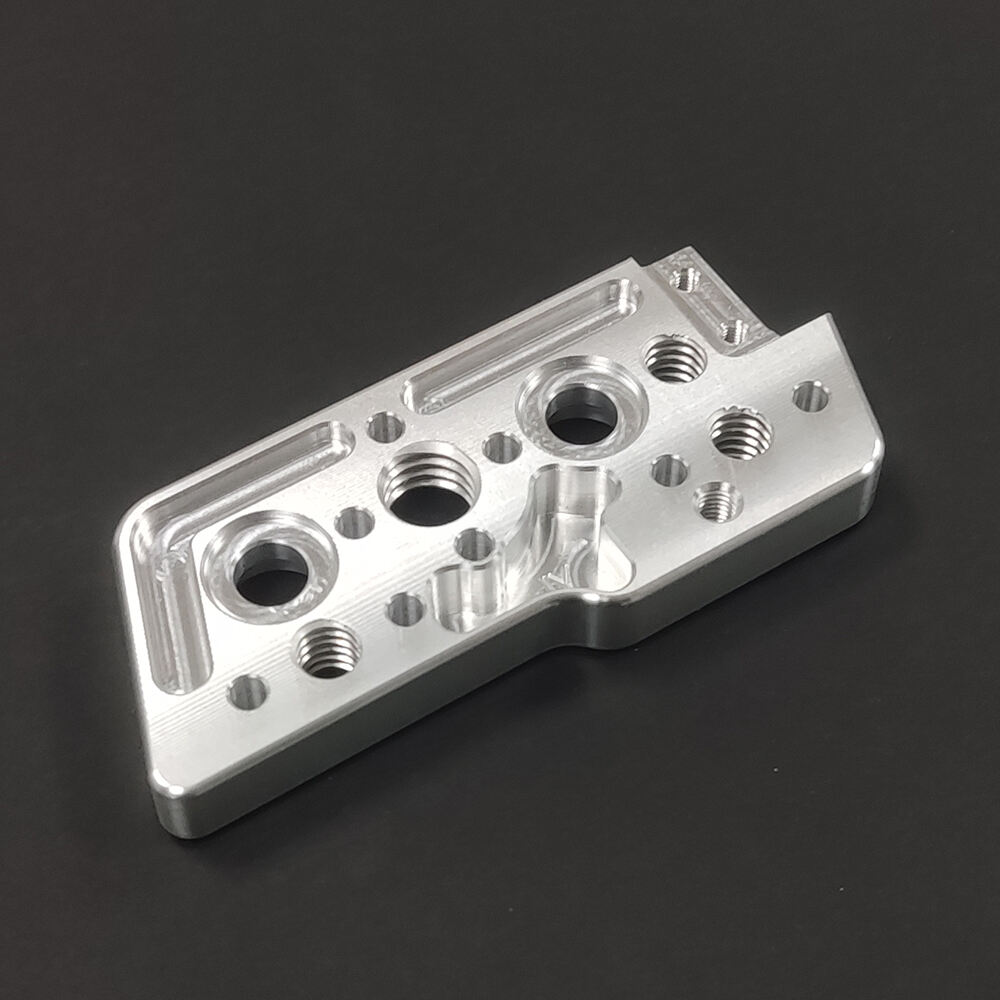The core position of CNC machining technology in modern manufacturing industry
Key Advantages of CNC Machining in Modern Manufacturing
Enhanced Automation for High-Volume Production
CNC machining makes production much smoother while cutting down on manual work and what that saves in money too. With automated systems running these machines all day and night, factories can keep producing even when demand spikes without compromising on either quality or how fast things get done. According to some industry data out there, companies adopting CNC automation often see their output jump by as much as 75%. That kind of boost really helps manufacturers handle rush orders and big volume requests without breaking a sweat. The bottom line is faster delivery times and lower payroll expenses, which explains why so many shops today consider investing in CNC technology worth every penny spent.
Precision Engineering for Complex Components
Computer Numerical Control machines really shine when it comes to making parts that need super tight tolerances. These machines follow digital blueprints to cut metal or other materials down to almost perfect dimensions, sometimes getting within just half a thousandth of a millimeter accuracy. The aerospace industry relies heavily on this kind of work for things like turbine blades that have to withstand extreme conditions without failing. Automotive manufacturers also depend on CNC tech for engine components that must fit together flawlessly to ensure performance and safety. What makes these machines so valuable is their ability to handle complicated shapes that would be nearly impossible to produce manually. Engineers across various fields now take for granted what was once considered cutting edge technology, but remains absolutely vital wherever precision matters most.
Consistency in Mass Production Workflows
CNC machining brings consistency to large scale production runs where every part comes out looking just like the last one, cutting down on waste and improving what gets shipped out the door. The automated nature of these machines means there's far less variation between pieces, something that matters a lot when making items that need to meet strict industry standards or government rules. When we talk about consistency, it's not only about getting all the parts exactly alike but actually making better quality goods too. Some studies have found around a 20 percent improvement in product quality when manufacturers stick to consistent processes with their CNC equipment. This kind of reliability makes all the difference in manufacturing results and builds trust in the final products customers receive.
Advanced CNC Machining Services and Capabilities
Multi-Axis CNC Lathe Operations for Intricate Designs
The ability to produce complex shapes and detailed designs through multi-axis CNC lathe operations has become a real game changer for custom manufacturing shops across various sectors. What sets these machines apart is their capacity to perform several cutting operations at once, which means parts don't have to be constantly moved around manually during production. This results in better accuracy overall while also shaving significant time off each manufacturing cycle. Some manufacturers report cutting down on production time by almost half when working on specific projects. For businesses needing tight tolerances and intricate geometries in everything from aerospace components to medical devices, having access to these advanced lathes isn't just helpful it's practically essential nowadays.
Sheet Metal Fabrication and Welding Integration
When manufacturers combine CNC machining with sheet metal work, they generally see much better results in both product quality and how accurately parts fit together. The combination makes it possible to cut materials with pinpoint accuracy while handling complicated assembly tasks that require welding different components seamlessly. Factories report faster production times after this kind of setup, and many have noticed their bottom line improving as waste goes down and rework becomes less frequent. For shops making thousands of identical parts week after week, this integrated method really pays off because it maintains consistency across all those pieces without compromising on standards.
Custom Metal Alloy Machining (Stainless Steel, Titanium, Copper)
CNC tech makes it possible to work with all sorts of metals without needing a bunch of different machines for each job. When companies need parts made from tough stuff like stainless steel, titanium or copper, they turn to custom machining processes. These materials are pretty much required in fields where quality matters most, think medical devices and aircraft components. Industry data indicates around 30 percent growth in requests for special alloy machining over recent years. This trend highlights why having flexible CNC systems is so important nowadays. Machines that can switch between different metals save time and money while still meeting those high standards many industries demand.
Material Versatility and Technical Expertise
Surface Treatment Options for Enhanced Durability
Surface treatments have become pretty important when it comes to making machined metal parts last longer and look better too. Methods such as anodizing or applying powder coatings do more than just make things last longer; they actually help components hold up against tough conditions out there. Take marine equipment for example, where saltwater corrosion is always a problem. The right kind of treatment really makes all the difference here. Industry research shows that parts treated properly can last twice as long as those without treatment, which means fewer replacements needed over time. That kind of durability saves money on maintenance while keeping operations running smoothly even under harsh circumstances.
CAD/CAM Compatibility for Rapid Prototyping
When CNC machines work together with CAD/CAM software, it completely transforms how we approach making prototypes and developing new products. Manufacturers can now take an idea from paper sketches straight into real-world items much faster than before, which means getting products out there quicker. With CAD/CAM tools at their disposal, designers aren't stuck waiting weeks between changes anymore. They can tweak designs overnight and see results within days instead of months. Many manufacturing firms report cutting down their prototype times by half or more after implementing this tech combo. For businesses trying to stay ahead in today's competitive landscape where every week counts, this kind of speed difference makes all the difference when bringing innovations to market first.
Quality Control in Metal Fabrication Processes
Good quality control remains essential throughout metal fabrication to make sure products actually meet those tough industry requirements. When manufacturers build quality checks into their CNC machining workflows, they get better results and fewer inconsistencies during production runs. Modern automated inspection equipment including real time monitoring setups helps catch flaws much faster than manual checks ever could. Research indicates that companies implementing thorough quality protocols often see defect rates drop somewhere around 25 percent or so, which naturally leads to happier customers and avoids problems with regulatory compliance issues. Beyond just improving what ends up on the shelf, these practices actually speed things along in the workshop too, cutting down waste and saving money in the long run for most operations.
CNC Technology's Role in Industry 4.0 Adoption
IoT-Enabled CNC Machines for Smart Factories
Bringing IoT into CNC machining is changing how smart factories operate, mainly because it connects all those devices together. When manufacturers start putting IoT tech into their CNC machines, they suddenly get access to real time data that lets them see exactly what each machine is doing at any given moment. This gives factory managers a much clearer picture of how well their equipment is performing day to day. For instance, some automotive parts makers have reported cutting down on unexpected breakdowns after implementing these systems. Market studies indicate that factories adopting IoT solutions typically boost their output somewhere around 30 percent. That kind of improvement matters a lot when companies are trying to stay ahead in manufacturing markets that never stop evolving.
AI-Driven Optimization in CNC Programming
The integration of Artificial Intelligence into CNC programming marks a significant shift for manufacturing operations across industries. Smart algorithms now analyze machining parameters for CNC machines, cutting costs and boosting shop floor efficiency. These systems process vast amounts of production data to suggest ideal tool paths and spindle speeds, which minimizes mistakes made by operators during setup. Some recent studies from manufacturing tech conferences suggest that shops adopting AI tools might see around 20% better performance metrics within ten years. While still early days, many plant managers report noticeable improvements in both part quality consistency and machine utilization rates. As Industry 4.0 continues its rollout, manufacturers who embrace these intelligent systems will likely gain competitive advantages through smarter resource allocation and reduced waste generation on the factory floor.
Recommended Products
Hot News
-
What is MIM processing method?
2025-11-25
-
Does copper for conductive purposes need surface treatment?
2025-11-21
-
Advantages of CNC machining
2024-01-16
-
What is CNC machining technology?
2024-01-16
-
The development trend of CNC machining
2024-01-16
-
Surface treatment technology in CNC machining: improving product added value
2025-03-20
-
What is the difference between SS316 and SS316L?
2025-11-10
-
Good news -100pcs large mechanical equipment casings have been produced
2025-11-11
-
Surface treatment of stainless steel - powder coating or spray painting
2025-11-13
-
What Role does Sheet Metal Shell Processing Play in Electronic Products?
2025-12-04

 EN
EN
 AR
AR
 CS
CS
 DA
DA
 NL
NL
 FI
FI
 FR
FR
 DE
DE
 EL
EL
 IT
IT
 JA
JA
 KO
KO
 NO
NO
 PL
PL
 PT
PT
 RU
RU
 ES
ES
 SV
SV
 TL
TL
 ID
ID
 VI
VI
 TH
TH
 MS
MS
